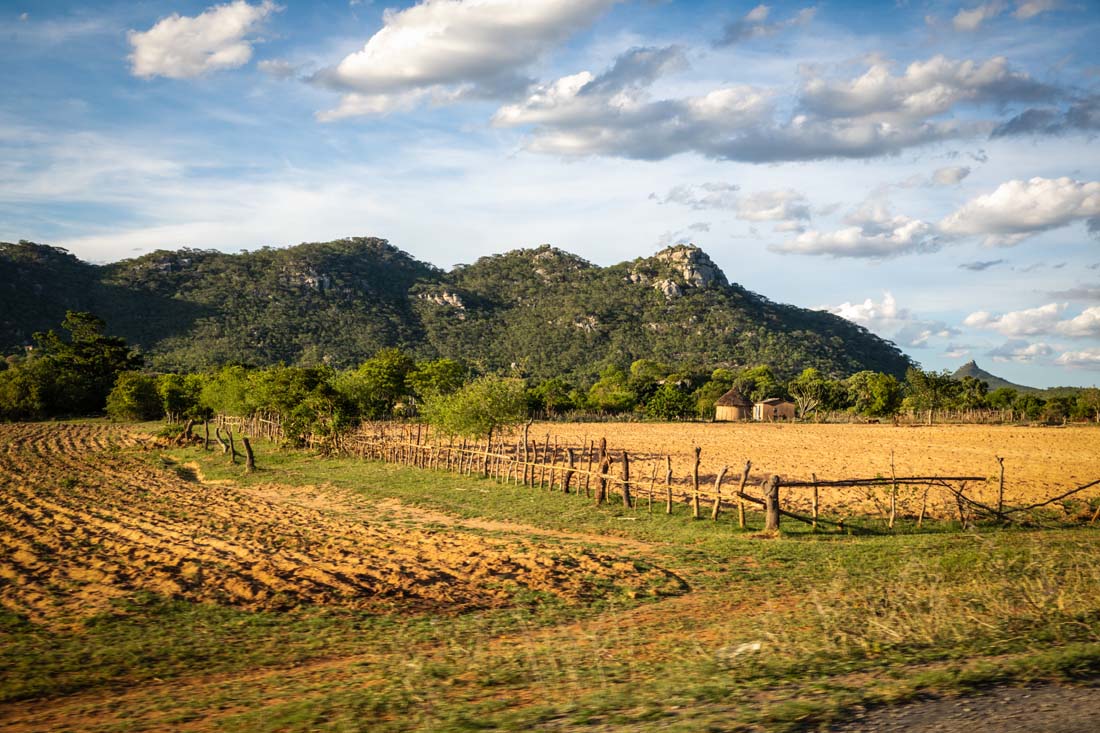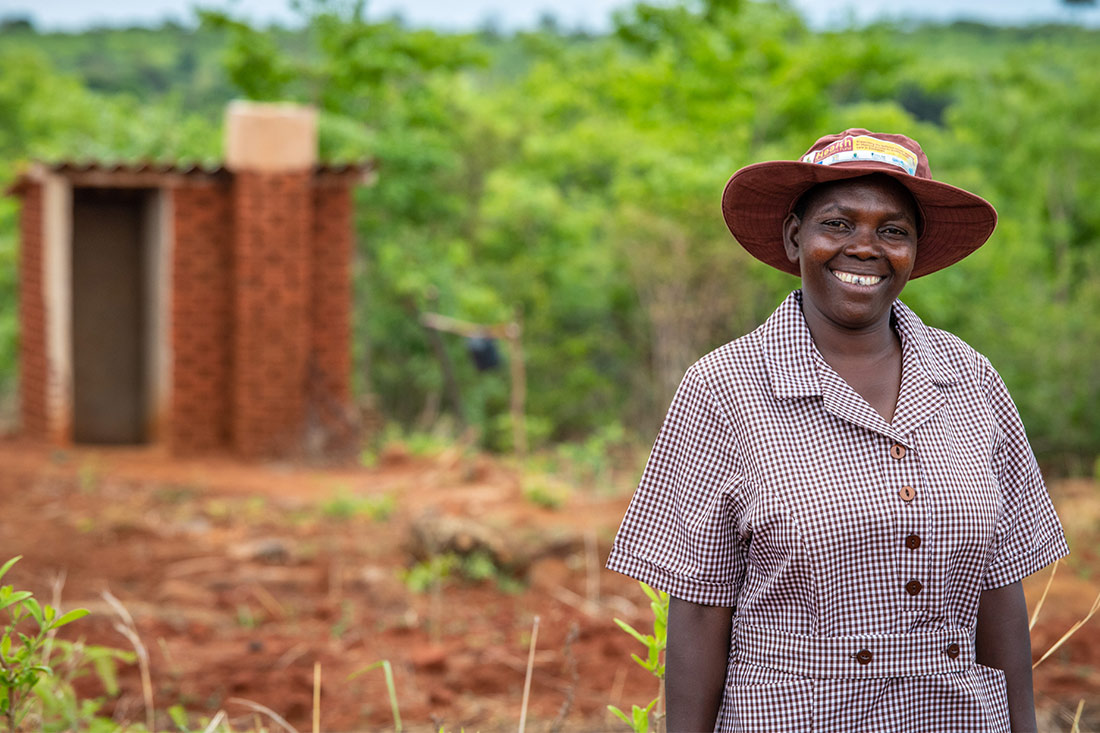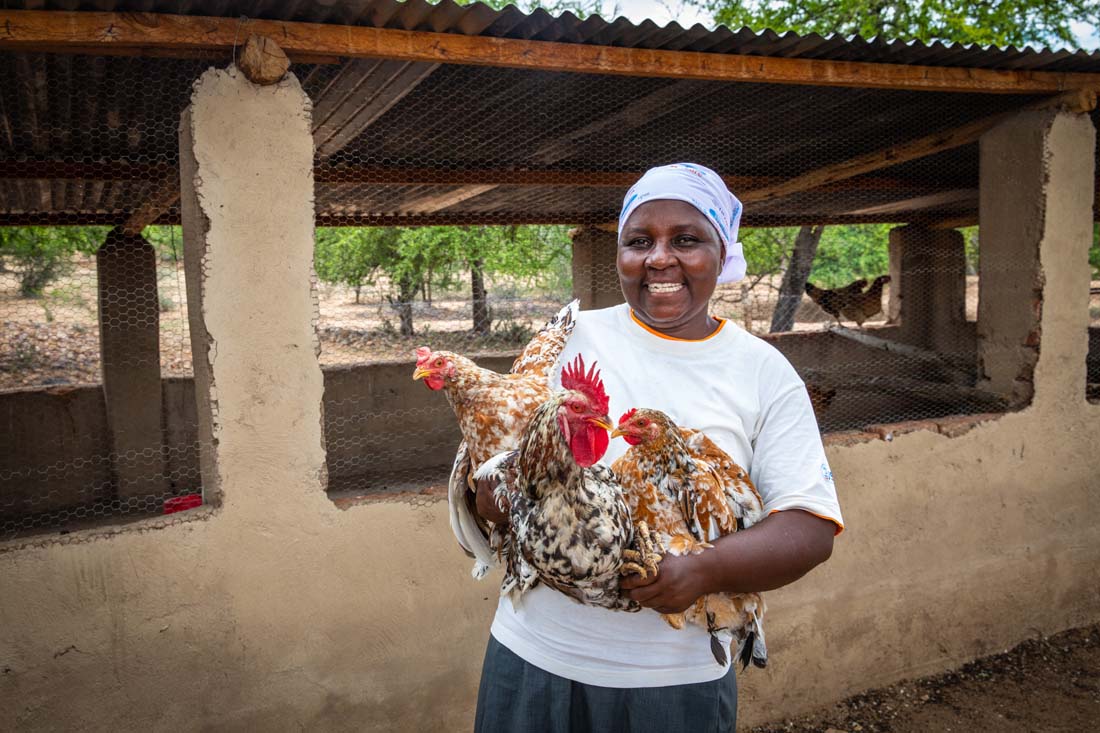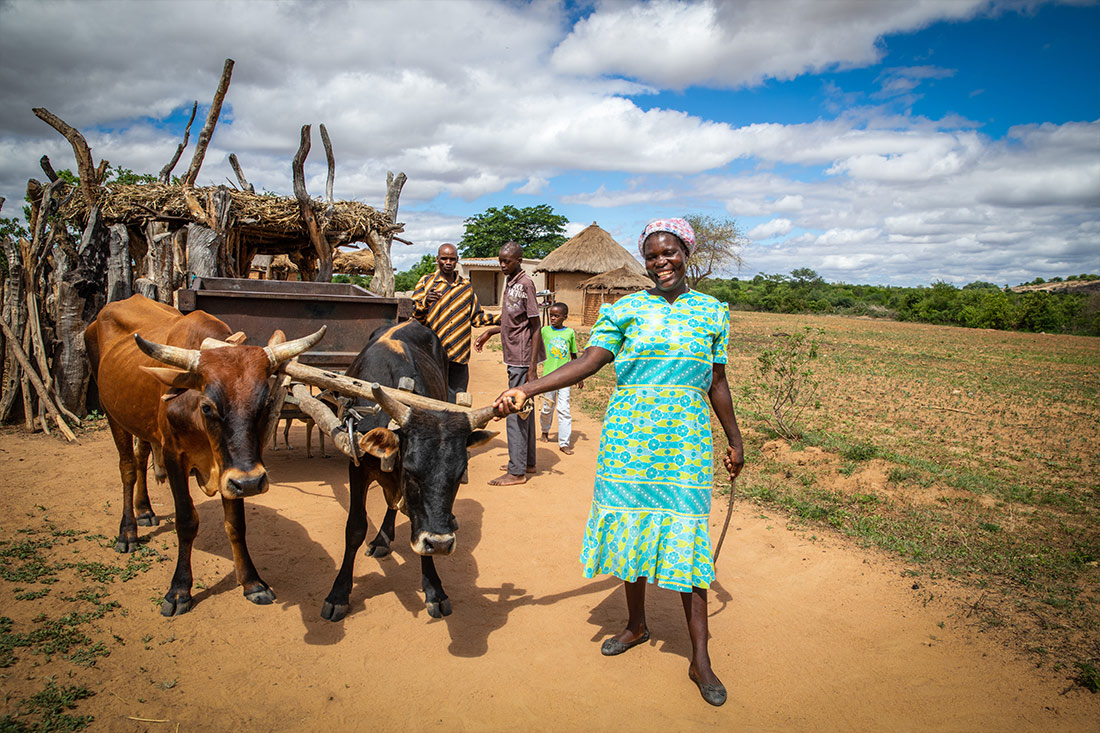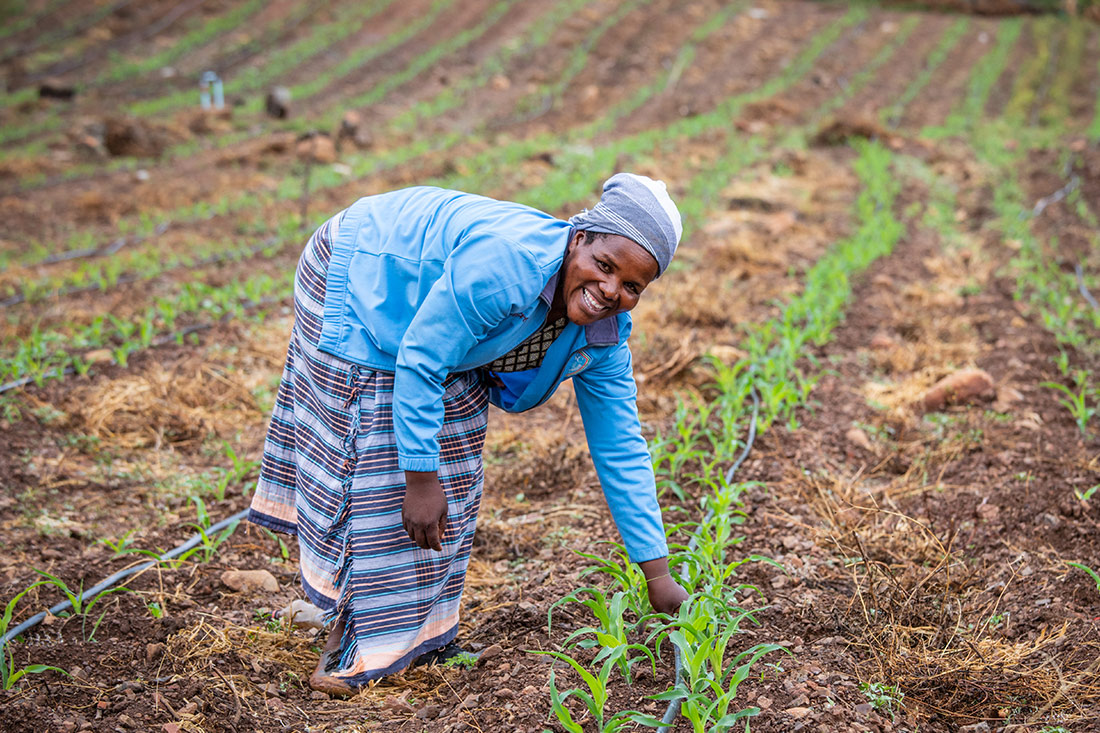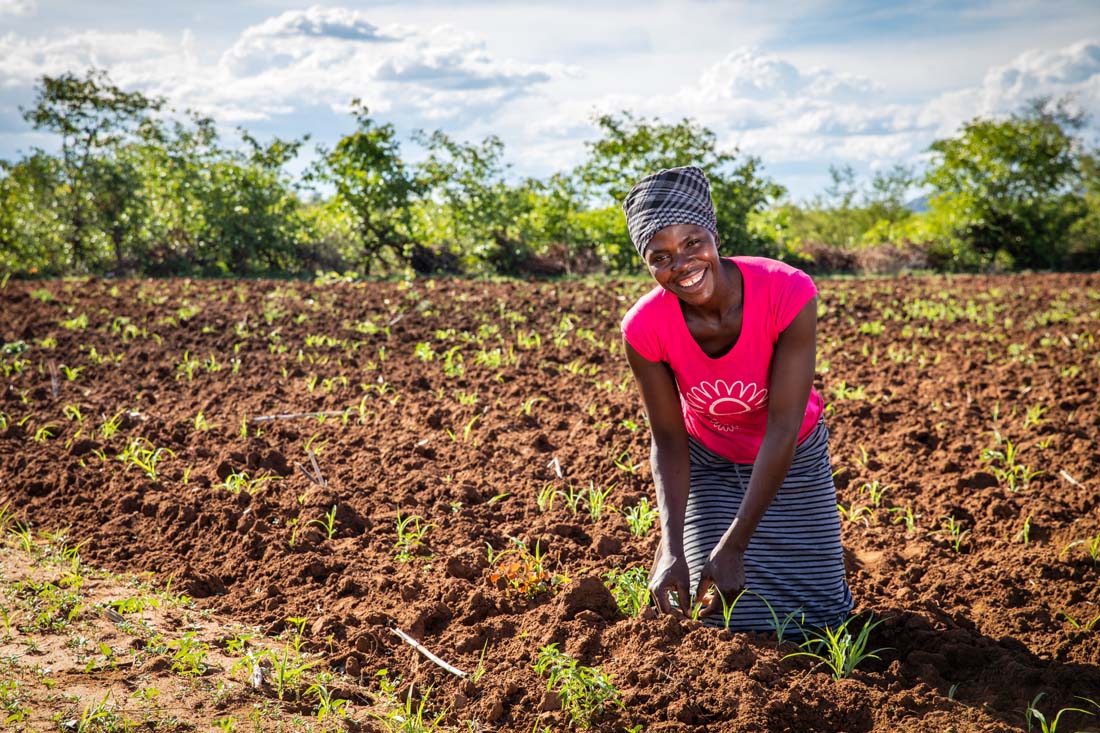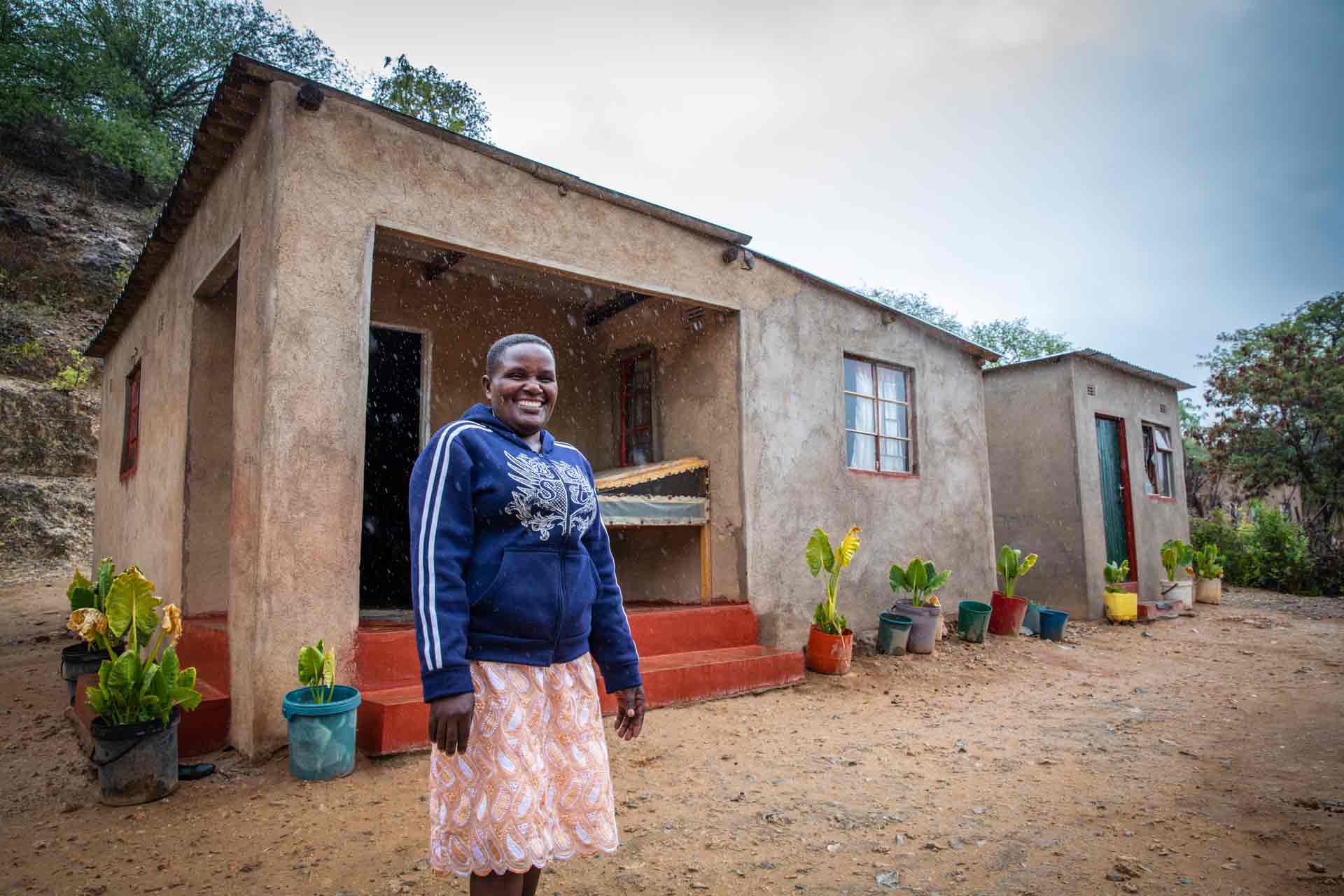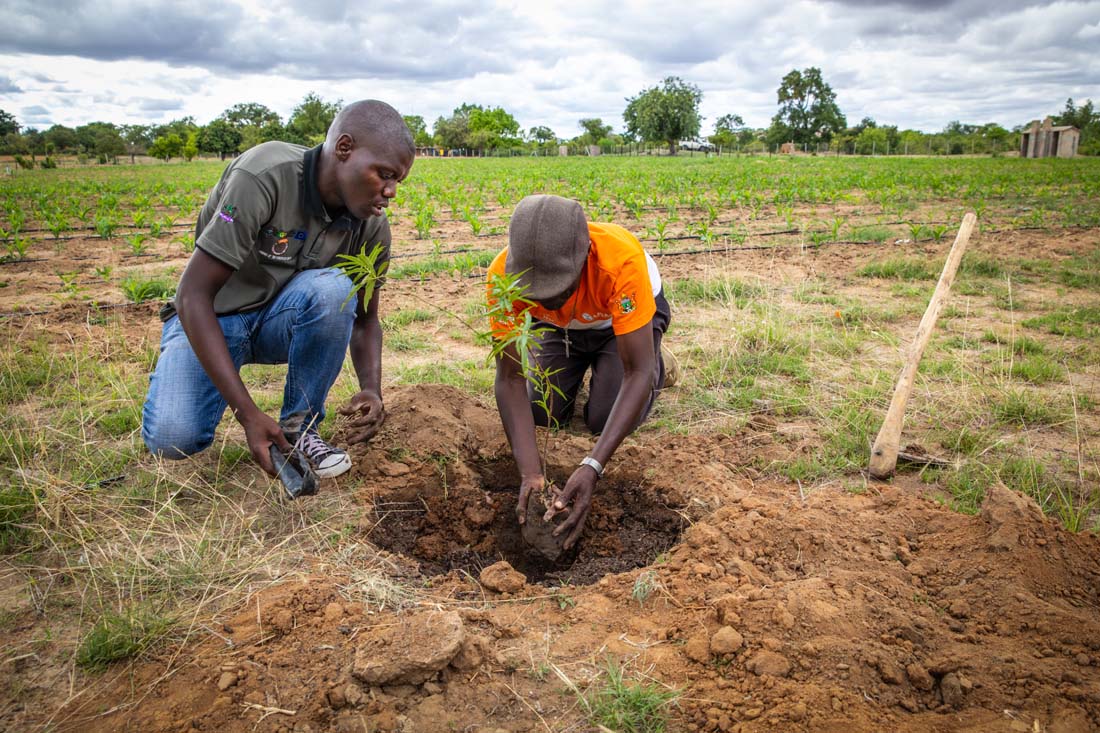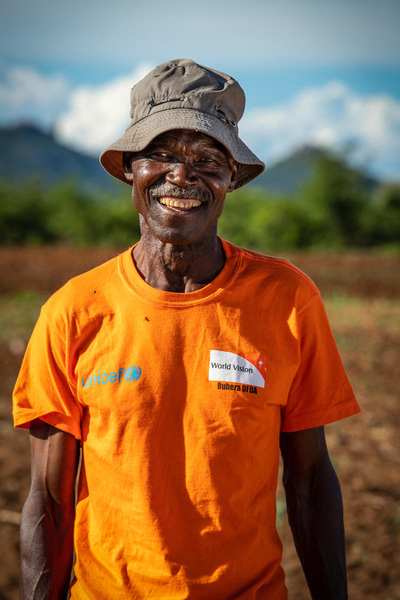
Local leader shares how ENSURE changed his community
By Kristy J. O’Hara-Glaspie
In the Buhera district of Zimbabwe’s eastern province of Manicaland, farmers struggle as they combat dry lands and rainless skies. Buhera is known across the province as a mini desert, and as rains have become more inconsistent the last couple decades, it has created food insecurity issues for many families in the region.
Edius Zinhanga, 71, is the village head in the area. He lives with his wife and three grandchildren, whose parents live in other cities in Zimbabwe and South Africa as they search for better opportunities. To support his family, for years, he would survive by making bricks and selling 1,000 for just US$30 every month. “With that amount of money, you can’t send a child to school or put food on the table,” he says. As he’s gotten older, he also says, “I don’t have the strength anymore.”
But World Vision began the ENSURE program in this area seven years ago. The program, funded by USAID, has worked to increase resiliency and food security through nutrition and livelihoods programs, and families are seeing hopeful changes in their lives.
Edius has seen change in his own home and at his son and daughter-in-law’s home nearby as well. He now makes enough money to buy food for his household, and even with high levels of inflation, he says, “ENSURE has taught me other ways to survive and supplement on what I have.” He now grows a garden of tomatoes and vegetables for both eating and selling for income. He also raises chickens, which help provide him income and money for savings through a Village Savings and Lending (VS&L) savings group, of which he is a group facilitator, overseeing all the savings groups in his area. Beyond even his community, in all of the ENSURE program areas, the ability for communities to cope with food shortages due to droughts or floods has increased from 28.6% to 45.5%.
World Vision spoke with Edius about how ENSURE has impacted his village and his hopes for the future.
How has ENSURE benefited your village?
ENSURE came to enhance this village by imparting knowledge that the village didn’t have. An example, as I was growing up, the standard [grade level] six was the gateway to success. I liken it to ENSURE was like a gateway to success.
What changes have you seen in the community?
ENSURE assisted us to learn other interventions we can do even if it doesn’t rain, like small gardening that we can irrigate with the little water that would be available. Also they spoke on conservation farming to try to get better harvests when the season is not so good. When we don’t have many rains, on a small plot of land, we can still harvest a lot.
Everyone in this community wants to reach a target of 1 ton of sorghum. Everyone is waiting for the rains to come because they want to harvest at least a ton because they know there is a ready market for the sorghum.
ENSURE took us to workshops — we went to places we never thought we could go. I went to Mutare (the provincial capital) for a workshop to learn about Village Savings and Lending.
What did you learn through that workshop?
When you’re doing VS&L in this village, you think you’re by yourself, but when we went for the workshop, we met people from Chipinge and other wards [with whom] we could exchange knowledge and experiences.
Through ENSURE, we learned you can actually save your money to buy significant things in your life. Before we got the training, we didn’t know you could save your money at that level in this village and be able to buy and do big things for yourself and your family.
What did you buy with your savings?
Long back before ENSURE, it was very difficult to buy anything if you didn’t save up. It was difficult to buy something, even like a wheelbarrow. I went to where there are shops to buy myself a wheelbarrow with the money I had saved, and I was able to buy mesh wire for my chickens. I managed to do it all at once with money from my savings.
Before VS&L, I wasn’t able to buy my vaccines for my cattle, goats, and chickens and have them stocked in my house. Now I go to Murambinda and buy them all at once and don’t have any challenges looking for money.
How else have you seen changes?
I’m secretary of the water point committee. Every borehole has a committee that manages it. We’re taught how to manage it. We get messages on how to manage and run the waterpoint committees.
I’m also a priest at my church. ENSURE is like a hub of knowledge. It has managed to teach us a lot of things. It taught us how to raise children in a way that God wants us to raise children.
You can’t move a car in the same gear. You go level by level, and that is how ENSURE taught us — stage by stage.
Why was it important for you to be involved with the programs yourself as village head?
I liken it to a soccer coach. A soccer coach is usually someone who has played soccer before and doesn’t play now, but has all the knowledge of how the game is played. That’s like me — I want to have all the knowledge of how all the game is played so I can impart it to future generations.
What is your hope for the future of your community?
I’m focused on VS&L. I’m hoping my groups are able to raise the contributions that they make from $10 to $20 per week, so at the end of the cycle — each cycle is about six months — they should be able to buy something big, like a cow.
With this VS&L process, I can’t change the breed of our cattle, but World Vision, we know, has the funds to import a better breed from Botswana so we too can improve our cattle. The breed of cattle we have right now is small, so when you sell it, it doesn’t fetch you very much money. But if it’s an improved breed, it will fetch you more money if it’s larger.
And what is your personal hope for the future?
As a priest, I need to spread the word of God, and I want to save enough money through VS&L to spread the Word of God — you can’t spread the Word with a bicycle if you want to go as far as Mutare or Chipinge.
You shouldn’t be going anywhere, ENSURE. You should just renew your contract because we still need to learn more!
